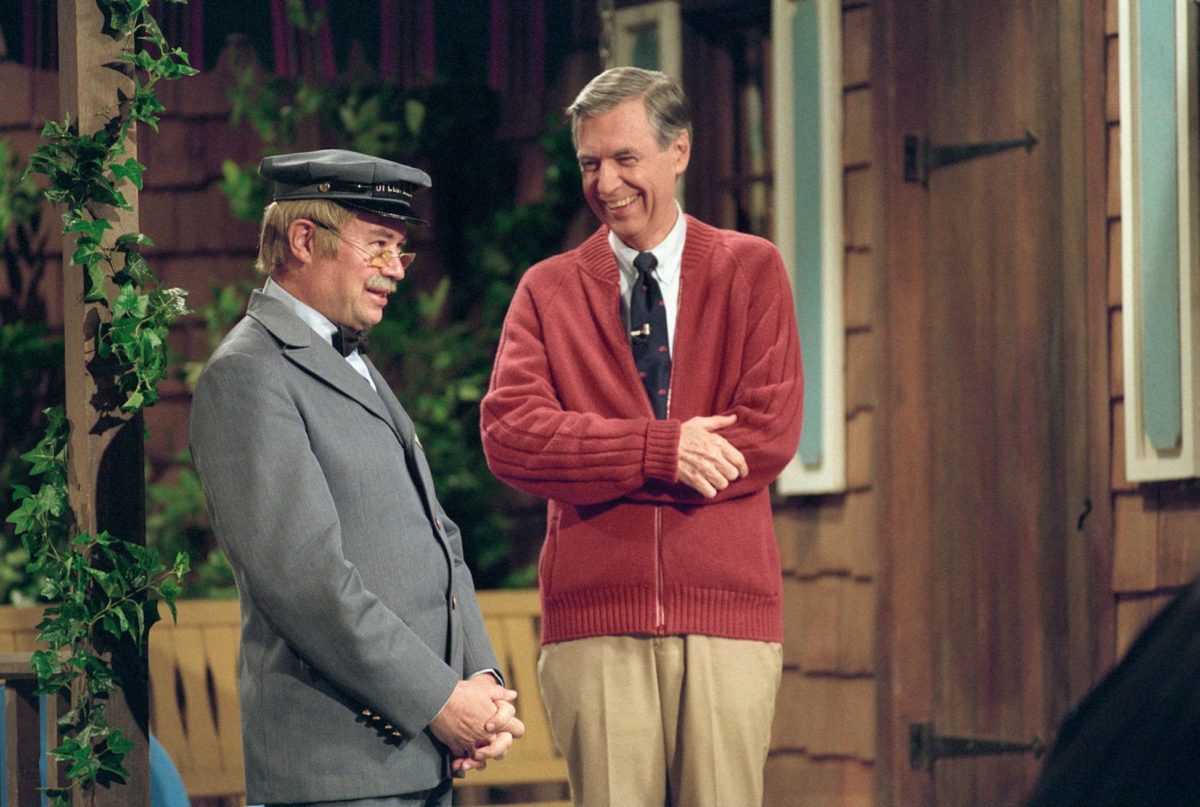My neighbors name is… well, his dog’s name is Frank. I know that because he yells it when he wants him to come inside. While I can’t remember his name right now, I DO know a few things about him. He drives a truck. It’s black and has a bunch of fancy tinted windows. He also is really into race cars. Stock cars to be more exact. He drives them for fun in some sort of “league” or something. He’s pretty good at it from what I can tell – as he once gave my son a postcard with his name and car on it (yes, I see the irony there). He likes to fish I think, as he has a boat in his driveway for large portions of the spring and summer, and frequently I see him hauling fishing poles to the truck after he has attached the boat to it. He listens to country music, I can hear it from his garage while he works on the car. Basically, he’s a real manly man – without a beard (it felt like it needed to be said) – who lives in a beautiful house next to me with his girlfriend of many years. But I still can’t tell you his name.
This is the case for many if not most of us in America in 2019. The people who LIVE closest to us, aren’t the ones who we are closest to. We have cars for that now, being close to people that is. We can drive wherever we want, whenever we want, to see whomever we want – and so that is what we do. If by some unfortunate chance our car breaks down or we run out of gas, there is always our phones, both mobile and not. While most people have abandoned the landline, some do still exist, and I haven’t met a person under 65 who didn’t have a cell phone in quite a while. These “phones” are actually tiny computers that contain seemingly unlimited ways of contacting and communicating with other people. You don’t have to have a face to face conversation with someone anymore in order to find out pertinent information – but if you want to your phone can use it’s video calling features to make that happen too.
Speaking of computers, if your phone dies or can’t find service, you don’t even need IT to make contact with the outside world anymore. You computer has hundreds of ways to make that happen as well. Email, social media, video conferencing, and much much more – all will help you reach the person you’re trying to within literal seconds of clicking send. I’m fairly certain I could write a short email, send it, and receive and read a response in the amount of time it would take me get off my couch and walk next door, ring the door bell and ask the question verbally. It might not even be as close as I’d like to think. Perhaps I’ll have to try it out some day. But I digress…
While an incredible blessing, the reality of this communication-through-technology world we live in, is that it isn’t without its flaws. Here’s the rub. You can’t give a hug over the phone, although with emojis you can’t say we’re not trying. You can’t bring someone dinner through email, and you most certainly won’t be drying your neighbors tears when they lose a parent or a sibling via the world wide web. There are some things you just have to do in person if you want them done right. I think that’s the way it should and always will be. A personal touch is something that you just can’t replicate, nor should you really even try. Being (really) there for someone else, in many ways, requires you to really be THERE.
So why do I bring these things up? I’m glad you asked. There’s this story in the Bible where a lawyer asks Jesus what the most important thing God wants us to do is. Often times the Bible is difficult and tricky to understand, but this is NOT one of those times. Here, just see for yourself;
Luke 10:25–28 (ESV)
And behold, a lawyer stood up to put him to the test, saying, “Teacher, what shall I do to inherit eternal life?” He said to him, “What is written in the Law? How do you read it?” And he answered, “You shall love the Lord your God with all your heart and with all your soul and with all your strength and with all your mind, and your neighbor as yourself.” And he said to him, “You have answered correctly; do this, and you will live.”
Love God and love your neighbor. Pretty simple and straight forward. Doesn’t leave too much to try and figure out. But it does leave a short yet important question for us to try and discern, and it’s one that Jesus’ audience picked up on as well.
Luke 10:29 (ESV)
But he, desiring to justify himself, said to Jesus, “And who is my neighbor?”
Who, is my neighbor? It’s a question they asked even in ancient times when cell phones and street lights weren’t making the question as difficult as is it today. It wasn’t like the guy didn’t know who lived next to him, it was probably his family or some of his closest friends. Maybe they weren’t all buddy buddy, but I bet at the very least, he knew their names. That’s what makes the question so important, and so revealing. It demonstrates something in us and about us that we aren’t, or at least shouldn’t be, too proud of. In some form or fashion, what the lawyer is REALLY asking is this;
“Who do I HAVE to love like that? Who qualifies to be the recipient of this radical, outrageous, life altering kind of love? Please specify, so that I don’t go around giving it to people I don’t have to, or people who don’t deserve it. I wouldn’t want to hand it out unfairly or unnecessarily. So tell me Jesus, WHO is my neighbor?”
It’s all too familiar of a set of circumstances, and DEFINITELY something I can hear myself and MANY Americans asking in 2019. But this, is why I love Jesus. Well, other than the whole dying for my sins and making me right with God thing – this is a close second. His answer, not only comes in the form of a story, but concludes with a question. And perhaps even better than that, it shoots straight to the heart of both the man, and the issue.
Luke 10:30–36 (ESV)
Jesus replied, “A man was going down from Jerusalem to Jericho, and he fell among robbers, who stripped him and beat him and departed, leaving him half dead. Now by chance a priest was going down that road, and when he saw him he passed by on the other side. So likewise a Levite, when he came to the place and saw him, passed by on the other side. But a Samaritan, as he journeyed, came to where he was, and when he saw him, he had compassion. He went to him and bound up his wounds, pouring on oil and wine. Then he set him on his own animal and brought him to an inn and took care of him. And the next day he took out two denarii and gave them to the innkeeper, saying, ‘Take care of him, and whatever more you spend, I will repay you when I come back.’ Which of these three, do you think, proved to be a neighbor to the man who fell among the robbers?”
‘You tell me’, Jesus says, which one of these guys is the most neighborly amongst those I listed. It turns out, being a neighbor is more a heart thing, and less about where people’s homes are. Perhaps the whole idea is that you CHOOSE your neighbors in more ways than one. You see, assuming the ‘man’ who was beaten and left for dead was a Jew, there’s something you need to know. Jews and Samaritans did NOT get along. Like not even a little bit. They hated each other SO much that the Jews had destroyed a Samaritan holy temple, because Samaritans were thought of as less than human. So it wouldn’t be too far fetched to say that the people hearing Jesus’ story (primarily a Jewish audience) would have thrown up in their mouth’s a little bit at the mere mention of a Samaritan, much less the fact that he’s the hero in the story. Honestly, I think that’s exactly why He did it.
I believe His point is this. Your neighbor is whoever you are next to. In each and every moment, and no matter the situation, the person next to you, the one with whom you are interacting, is in fact, in that situation, the person Jesus calls you to love. They share a residence with you, on planet earth – and therefore, they get the neighbor treatment.
I can see the lawyer’s response now. Shoulders slumped, resigned sigh, he answers Jesus’ question with great reluctance and an understanding about what this means for his future – and Jesus agrees.
Luke 10:37 (ESV)
He said, “The one who showed him mercy.” And Jesus said to him, “You go, and do likewise.”
I don’t know my neighbor’s name, but I know I’m supposed to love him. Him and everyone else. So this winter when you see me plowing his driveway after a snowstorm, or walking his dog back to his front door after he came to visit my nice warm garage, you’ll know why. I am trying to be everything to him, that I would want him to be to me. I am trying to love him like I love myself. I am trying to be like Jesus in a world where just being the guy next door normally cuts it. Hopefully he notices, and something inside him wants to know why. If that happens, I’ll be sure to tell him – right after I ask him his name.


